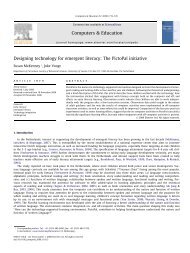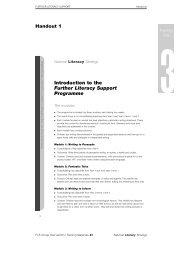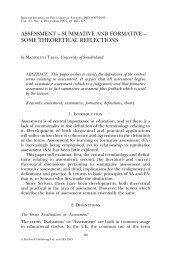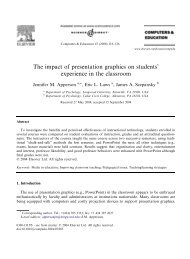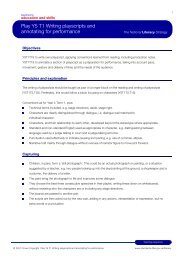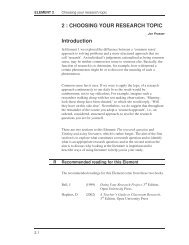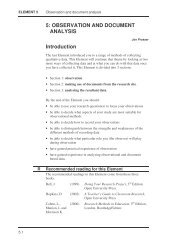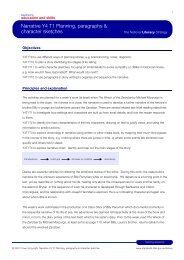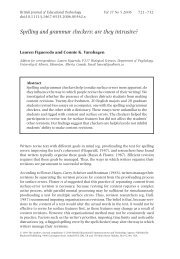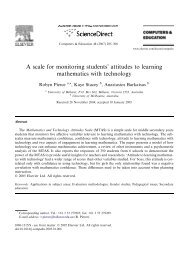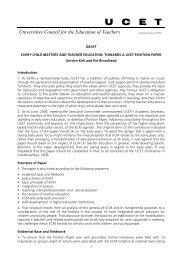Module 2: Written feedback - PGCE
Module 2: Written feedback - PGCE
Module 2: Written feedback - PGCE
Create successful ePaper yourself
Turn your PDF publications into a flip-book with our unique Google optimized e-Paper software.
4.1 Introduction 10 minutes<br />
Show slide 4.2.1.<br />
Slide 4.2.1<br />
You will find it helpful to remind participants of the introductory point made in<br />
module 1 of this unit, namely that modules 1 and 2 of this unit, ‘Oral <strong>feedback</strong>’<br />
and ‘<strong>Written</strong> <strong>feedback</strong>’, are closely interrelated. Both focus on improving the<br />
quality of regular constructive and informative <strong>feedback</strong> in order to help pupils<br />
take the next steps in their learning and make progress towards their targets.<br />
<strong>Module</strong> 2, ‘<strong>Written</strong> <strong>feedback</strong>’, focuses on providing high-quality, detailed and<br />
informative marking on a selective basis rather than cursory surface marking for<br />
all pupils on every piece of work. This will involve a significant change in marking<br />
policy for many departments and schools. This approach to providing written<br />
<strong>feedback</strong> cannot work unless oral <strong>feedback</strong> is detailed, personalised and<br />
routinely provides the information pupils need to make progress.<br />
The relationship between oral and written <strong>feedback</strong> needs to be agreed and<br />
embodied in the whole-school policy and must be explicitly shared with pupils<br />
and parents so that what pupils can expect to receive is clear. Schools must<br />
continue to ensure that approaches to providing <strong>feedback</strong> and its quality remain<br />
consistent across departments.<br />
Tell participants that research provides strong evidence to show how effective<br />
written <strong>feedback</strong> can promote learning.<br />
Show slide 4.2.2.<br />
Slide 4.2.2<br />
Say that these are the guiding principles for written <strong>feedback</strong> and will need to be<br />
borne in mind when formulating whole-school policy. Issues such as the<br />
appropriate amount and regularity of detailed <strong>feedback</strong> and the form and place<br />
of grades, marks and levels will also need to be agreed and applied consistently<br />
across the school.<br />
2 Whole-school development in assessment for learning | Presenter’s Notes © Crown copyright 2004



